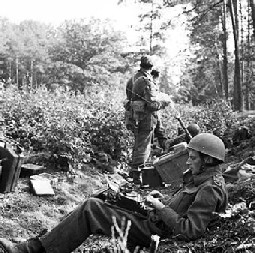The speed with which information came back from the battlefields led to more public involvement in decision making. Previously to the development of the telegraph the public learned only of events well after they had taken place.
For instance, it took 15 days for the news of the great naval victory at Trafalgar and Lord Nelson's death to be carried by ship - HMS Pickle was given the task once the scattered fleet had regrouped - and post chaise (with 19 changes of horses). With the telegraph news from events such as the Crimean war, the Boer War and the Siege of Khartoum became public the next day. Public opinion is thought to have swayed the authorities' decisions over the poor treatment of the Boers by the English and the attempt to rescue General Gordon from Khartoum.
By the advent of World War One in 1914, war correspondents for a variety of newspapers were regularly reporting from the front and early versions of fax machines allowed them to 'wire' photographs back. However, the authorities had woken up to the power of information and heavy censorship was in place. See the  British Military History Collections for more details.
British Military History Collections for more details.
 Instant news
Instant news





 British Military History Collections
British Military History Collections Instant news
Instant news
What's your opinion?
Average rating




Not yet rated